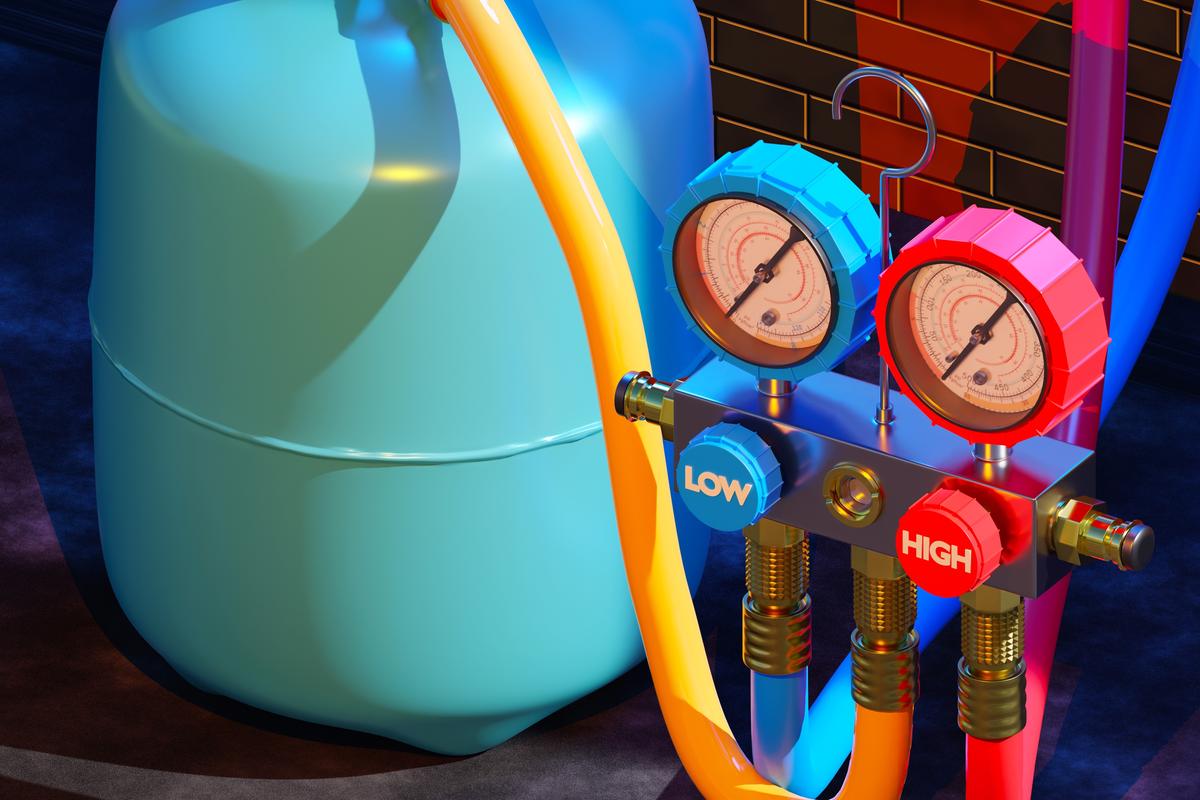Refrigerants are integral components of various cooling and refrigeration systems, playing a pivotal role in maintaining comfortable temperatures and preserving perishable goods. However, certain refrigerants, such as R290 (propane), demand special attention due to their flammable nature. Ensuring safety when handling R290 is paramount, and this comprehensive guide will outline crucial safety measures to adhere to when working with this refrigerant.
Understanding R290 Properties
Before delving into safety measures, it is imperative to have a thorough understanding of R290. R290 is a hydrocarbon refrigerant with exceptional thermodynamic properties. It boasts high efficiency at heat exchange, making it a preferred choice for many applications. However, what sets it apart is its flammability. Being aware of these characteristics is fundamental to ensuring safe handling.
Proper Training and Certification
One of the foremost safety measures when working with R290 is ensuring that anyone involved in its handling is adequately trained and certified for the task. Technicians should undergo specific training programs that comprehensively cover the safe use, storage, and transportation of R290. These certifications equip individuals with the knowledge needed to understand the risks associated with the refrigerants and how to effectively mitigate them.
Adequate Ventilation
Creating and maintaining a well-ventilated workspace is paramount when handling R290 refrigerant. Adequate ventilation serves as a crucial safety measure as it helps disperse any potential leaks or vapour clouds that may form. In the event of a leak, the dispersion of the gas reduces the risk of ignition, significantly enhancing the safety of the working environment. Proper ventilation systems, such as exhaust fans and air exchange systems, must be in place and regularly maintained to ensure optimal safety.
Leak Detection Systems
Installing reliable leak detection systems is another vital safety measure when working with R290. These systems are designed to swiftly detect even the smallest leaks, allowing for immediate response and mitigation. Early detection is crucial since R290 is highly flammable and can pose a significant risk if left undetected. Regular maintenance and calibration of these systems are essential to ensure their effectiveness.
Personal Protective Equipment (PPE)
Wearing appropriate Personal Protective Equipment (PPE) is non-negotiable when handling R290 refrigerant. This includes flame-resistant clothing, safety goggles, gloves, and footwear. These protective measures act as a barrier between the technician and any potential sources of ignition. PPE should be regularly inspected for wear and tear and replaced when necessary to maintain its effectiveness.
Fire Safety Precautions
Given the flammability of R290, fire safety precautions should be a top priority. Fire extinguishers rated for Class B fires (flammable liquids and gases) should be readily available in the workspace. Technicians must be trained in their proper use and know the location of extinguishers at all times. Additionally, emergency evacuation plans and fire drills should be established and regularly practiced to ensure a swift and orderly response in case of a fire.
Minimize Ignition Sources
Minimizing potential ignition sources is crucial when working with R290. Any equipment or tools that could create sparks or open flames should be kept far away from the refrigerant handling area. This includes ensuring that all electrical equipment is explosion-proof or intrinsically safe in areas where R290 is present. Smoking, open flames, and hot work should be strictly prohibited in such areas.
Safe Storage Practices
Safe storage practices are equally important to prevent accidents when dealing with R290. Refrigerant cylinders containing R290 should be stored in well-ventilated areas specifically designed for this purpose. These storage areas should be equipped with proper signage and ventilation systems to maintain a safe environment.
Emergency Response Planning
Having a well-thought-out emergency response plan in place is crucial for handling R290 safely. This plan should outline procedures for dealing with leaks, fires, or other emergencies involving the refrigerant. All personnel involved should be familiar with these procedures and be ready to execute them swiftly and efficiently.
Regular Equipment Maintenance
Regular maintenance of refrigeration equipment is essential to prevent leaks and ensure the safe handling of R290. Leaks often occur due to faulty or deteriorating equipment. Scheduled maintenance and inspections can help identify and rectify potential issues before they escalate, reducing the risk of leaks and associated hazards.
Compliance with Regulations
Adhering to local, national, and international regulations pertaining to the handling of R290 is a non-negotiable safety measure. These regulations often dictate specific requirements for training, storage, transportation, and emergency response procedures. Staying compliant not only ensures safety but also helps avoid legal consequences.
Ongoing Training and Awareness
Lastly, safety is an ongoing process, and technicians should continuously update their knowledge and awareness regarding R290. Staying informed about the latest safety practices, regulations, and advancements in refrigeration technology is essential for maintaining a safe working environment.
Conclusion
While R290 is a highly efficient refrigerant, its flammable nature requires rigorous safety measures to ensure the well-being of technicians and the public. Understanding its properties, proper training, adequate ventilation, leak detection systems, PPE, fire safety precautions, minimizing ignition sources, safe storage, emergency response planning, regular maintenance, compliance with regulations, and ongoing training all play a vital role in ensuring the safe handling of R290 refrigerant. By following these safety measures diligently, we can harness the benefits of R290 while minimizing the associated risks.

